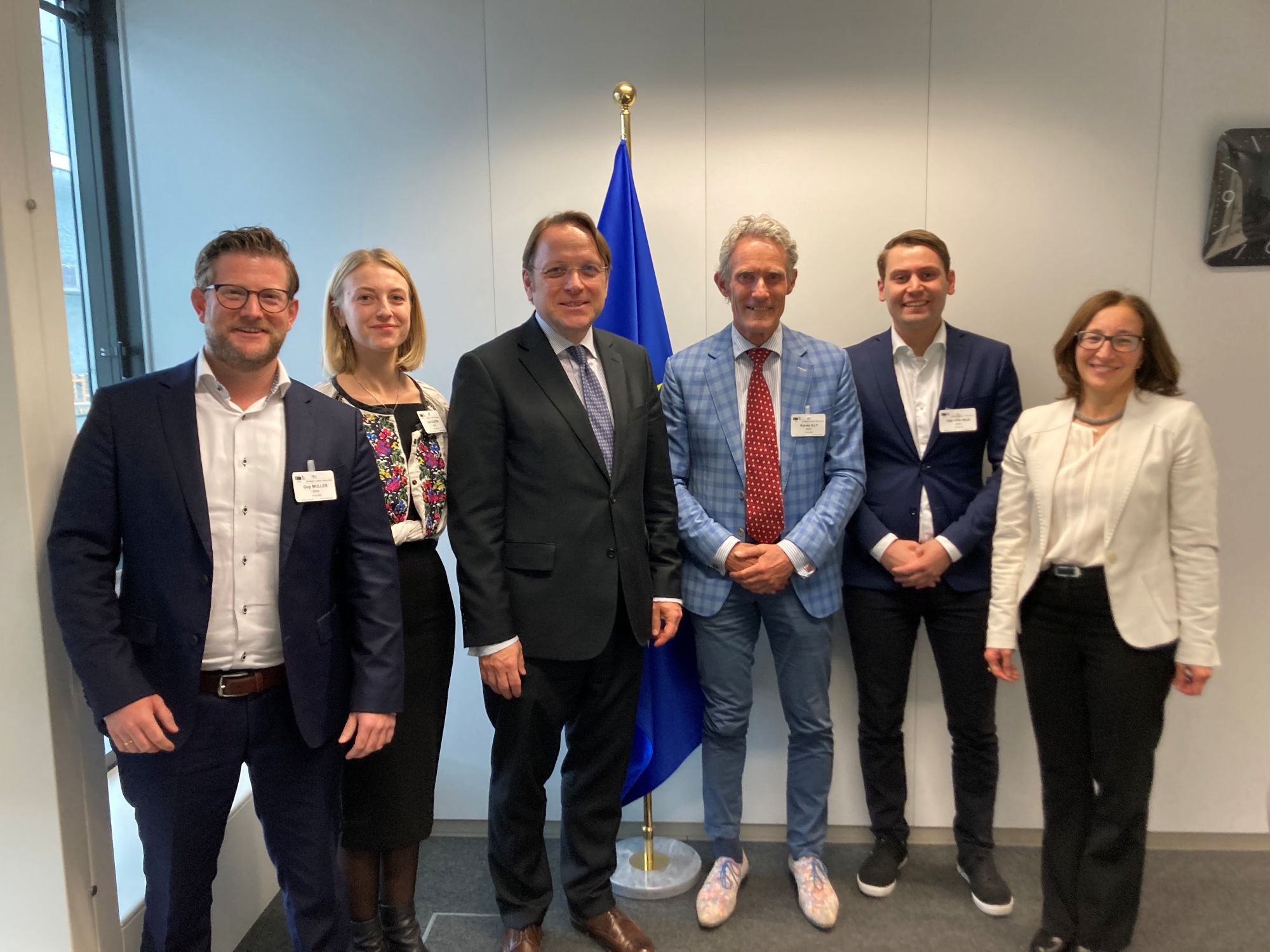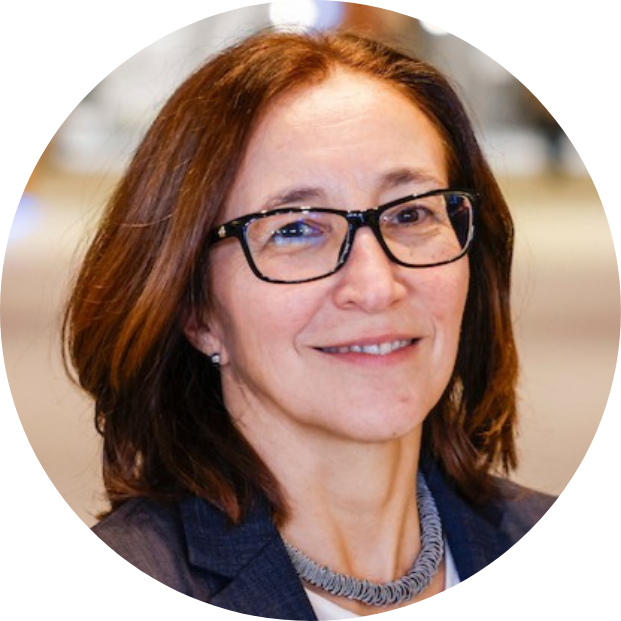European Week Against Cancer 2025
Every minute, five people in the EU hear the life-changing words: ‘You have cancer.’
Looking ahead to 2035, projections show that cancer will become the leading cause of death in the EU, with lives lost expected to rise by more than 24%. But while cancer is a unique experience for everyone, it’s more than an individual challenge – it’s a global challenge.
It demands a united response, based on cooperation, innovation, and shared commitment. Europe’s Beating Cancer Plan and the EU Mission on Cancer show the power of unified efforts, having already made meaningful improvements in prevention, diagnosis, treatment, and survivorship.
In the four years since the launch of Europe’s Beating Cancer Plan, the European Cancer Organisation (ECO) has worked closely with healthcare experts, patients, and policymakers to support these achievements.
The European Week Against Cancer (EWAC) led by the Association of European Cancer Leagues (ECL) - takes place between 25 and 31 May each year and brings together cancer leagues, health advocates, civil society groups, policymakers, and cancer patients and survivors to raise awareness about the importance of cancer prevention and care.
The highlight of the European Week Against Cancer was Tuesday afternoon’s meeting between the EU Commissioner for Health and Animal Welfare, Olivér Várhelyi, and representatives of the Smoke Free Partnership Coalition, including the CEO of the European Cancer Organisation, Elisabetta Zanon.

Each day this week, we’re highlighting different ways the cancer community is working to improve outcomes and reduce the burden of cancer for all.
25 May: Primary Prevention
Vaccination is one of the most effective tools to prevent diseases such as cancer. Human papillomavirus (HPV) and hepatitis B virus (HBV) are two well-established causes of cervical and liver cancers, respectively, placing a considerable disease burden across Europe. Safe, effective vaccines are readily available, yet vaccination rates remain uneven across the continent.
To address this, the European Cancer Organisation has played a leading role in advancing targeted initiatives through its HPV and Hep B Action Network. This includes launching the HPV Prevention Policy Atlas, promoting gender-neutral vaccination, and facilitating regional cooperation - such as the South East Europe Collaboration in Bulgaria - to boost vaccination and screening rates in lower-uptake areas. The recently concluded PROTECT-EUROPE project, co-funded by EU4Health, further supported adolescent vaccine uptake with innovative bundling strategies and public health communication campaigns.
These efforts are essential to meet the ambitions of Europe’s Beating Cancer Plan to eliminate all HPV-related cancers: cervical, penile, anal, vaginal, vulvar, and head & neck.
Achieving cancer prevention goals will require stronger policy implementation, international collaboration, and sustained public education efforts. To find out how your organisation can contribute to this collective mission, visit our dedicated webpage.
26 May: Early Detection
Early detection can greatly impact cancer treatment, allowing less invasive and more cost-effective procedures, preventing more severe symptoms and complications, and significantly increasing chances of survival.
But how can we improve rates of early detection? The evidence is clear. We need policies that create greater public awareness of the early signs of cancer, identify populations at higher risk of developing cancer, and build capacity in primary care and cancer screening programmes.
Unfortunately, not all EU countries provide equal access to lifesaving screening. The European Cancer Screening Policy Index offers a snapshot of which countries are excelling and which ones are struggling. Read more about policies that improve public access to early detection programmes in the Time to Accelerate Roadmap.
27 May: Access to Quality Cancer Care
Effective advocacy for quality cancer care begins by identifying the specific standards to be sought. Essential Requirements for Quality Cancer Care (ERQCC) provides ambitious but realistic goals developed by medical professionals and patient representatives.
These targets, rather than clinical guidelines, outline the key elements needed across healthcare systems to ensure quality care throughout the patient journey. The quality of cancer care profoundly impacts patients and their families, and a true multidisciplinary approach is essential to delivering this care effectively.
The ERQCC papers serve as roadmaps to guide oncology teams, patients, and decision-makers in achieving the highest standards of multidisciplinary cancer care, with a focus on the European context. Stay tuned for the launch of the newest flagship paper of the series, in anticipation of the EHA2025 Congress: Essential Requirements for Quality Cancer Care: Hematological Malignancies.
28 May: Digital Health
Innovation and new digital technologies are driving healthcare forward. They can help cancer professionals deliver safer care to more patients, but they must be developed prudently. Perhaps the most exciting of these new technologies is AI. Artificial intelligence has enormous potential to make diagnoses and treatments safer, more effective, and more efficient – and health professionals are focused on securing the benefits and reducing the risks.
With so much at stake, researchers must work collaboratively. Stay up to date with the latest AI developments in cancer by following the AI Blog of the European Society of Radiology (ESR).
29 May: Research
Research is the foundation of progress in all cancer care. In May, Warsaw hosted the first Cancer Mission Fair. The Cancer Mission is vital for fostering collaboration, innovation, and public engagement to accelerate progress in cancer prevention, treatment, and care throughout Europe.
The event organised by the ECHoS EU-funded project with support from the European Commission and the European Cancer Organisation (ECO) brought together citizens, policymakers, researchers, and innovators to advance cancer care and research across Europe. It featured the launch of Europe’s first National Cancer Mission Hub, interactive workshops, and broad stakeholder participation, including patients and civil society. Read more about our activities in Poland here.
30 May: Patients and Survivors
Cancer is no longer a death sentence. Yet many of Europe’s 20 million cancer survivors continue to face discrimination.
ECO works alongside patient advocates, healthcare professionals, and civil society partners to spotlight patient experiences and tackle barriers to equitable care – during and after treatment. As part of these commitments, ECO is proud to be part of EUonQoL, an EU-funded project that puts the experiences of people with cancer at the heart of healthcare planning.
 ‘The results of these in-depth assessments will guide health care professionals, inform public health policies, and empower patients themselves. It will help ensure that a person's quality of life becomes a key part of how we plan, deliver, and improve cancer care across Europe. I hope you learn more about this novel project.’ - Csaba Dégi, President of the European Cancer Organisation
‘The results of these in-depth assessments will guide health care professionals, inform public health policies, and empower patients themselves. It will help ensure that a person's quality of life becomes a key part of how we plan, deliver, and improve cancer care across Europe. I hope you learn more about this novel project.’ - Csaba Dégi, President of the European Cancer Organisation
31 May: World No Tobacco Day
Tobacco consumption remains the leading cause of preventable death in the EU, responsible for 27% of all cancer cases. Despite past progress, recent data shows a worrying rise in traditional cigarette use among 15–24-year-olds, from 20% to 22% between 2020 and 2023, threatening the EU’s goal of a Tobacco-Free Generation by 2040. To prevent a resurgence of tobacco-related diseases, the EU must urgently revise its outdated tobacco control legislation.
The European Cancer Organisation joined forces with the Smoke Free Partnership (SFP) Coalition, the European Respiratory Society (ERS), and the European Network for Smoking and Tobacco Prevention (ENSP), to support 12 Member States calling on the European Commission to deliver on Europe’s Beating Cancer Plan. Read the full statement here.
The European Cancer Organisation and the Smoke Free Partnership Coalition met with EU Commissioner for Health and Animal Welfare, Olivér Várhelyi, on Tuesday 27 May.
The meeting, just days before ‘World No Tobacco Day’, helped focus greater attention on a key objective of Europe’s Beating Cancer Plan: Achieving a tobacco-free Europe. Representatives of the two organisations reiterated the need for action to reduce the risks associated with tobacco use.
 'During the meeting, we expressed major concern about the rising use of novel products, such as e-cigarettes and nicotine pouches, among teens and young adults, calling for strict EU regulation.' - Elisabetta Zanon, CEO of the European Cancer Organisation
'During the meeting, we expressed major concern about the rising use of novel products, such as e-cigarettes and nicotine pouches, among teens and young adults, calling for strict EU regulation.' - Elisabetta Zanon, CEO of the European Cancer Organisation


